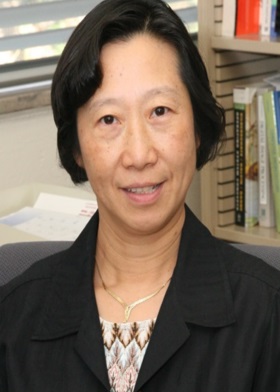报告题目:ComputationalIntelligence in Vehicles and Transportation Systems
报告人:美国密西根大学迪尔本分校工学院副院长Prof. Yi Lu Murphey
报告时间:2月28日下午16:00-17:30
报告地点:西一楼三楼第一会议室(344)

Brief Biography
Dr.Yi Lu Murphey received a M.S. degree in computer science from Wayne StateUniversity, Detroit, Michigan, in 1983, and a Ph.D degree with a major inComputer Engineering and a minor in Control Engineering from the University ofMichigan, Ann Arbor, Michigan, in 1989.She is currently a Full Professor at the ECE (Electrical and ComputerEngineering) department and the Associate Dean for Graduate Education andResearch at the College of Engineering and Computer Science in the Universityof Michigan-Dearborn.Prior to hercurrent position, she served as the chair of the Department of Electrical andComputer Engineering for seven years.She has authored over 150 publications in refereed journals andconference proceedings in the areas of areas of machine learning, patternrecognition, computer vision and intelligent systems with applications tointelligent vehicle systems, optimal vehicle power management, data analytics,automated and connected vehicles and robotic vision systems.She has received over $7 million in researchgrants and contracts over the last twenty years from US National ScienceFoundation, US Department of Defense, and many industrial companies.Currently her current research in machinelearning, computer vision, and data science are funded by Ford Motor Company,ZF-TRW Automotive, University of Michigan Mobility Transformation Center (MTC),Michigan Institute of Data Science (MIDAS) and Toyota Research Institute.Dr. Murphey is a Distinguished Lecturer forthe IEEE Society of Vehicular Technologies and a fellow of IEEE.
Abstract:Nearly every facet of our society is undergoing a shift of connecting theindividual to the community. The “Internet of Things” movement is giving greatpower to the individual, by personalizing information that is time andlocation-aware.In the broadtransportation community, building on the momentum and success of prior andcurrent research, two primary areas have been identified as the forefront ofITS (Intelligent Transportation Systems) research, Connected and AutomatedVehicles (CAV).Transforming individual vehicles into anintegrated cyberphysical system through connectivity and automation can improvevehicle efficiency, convenience and safety to drivers, and reducegreenhouse-gas emissions by an order of magnitude.In this talk, I will present three differentresearch projects in the areas of CAV using computational intelligence, accurateprediction of traffic flow, individual driving speed profiles, and personalizeddriving routes.I will give an in-depthdiscussion on machine learning forintelligent traffic flow prediction.
